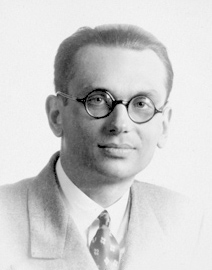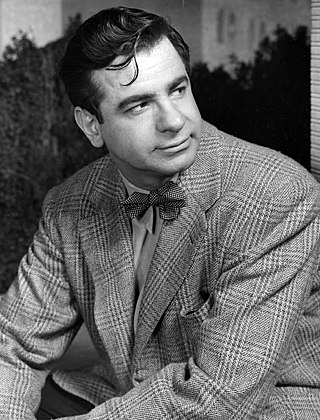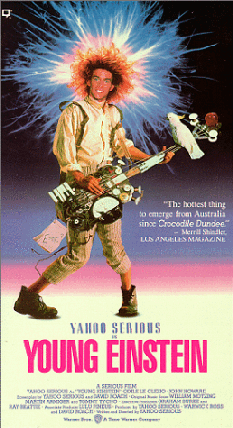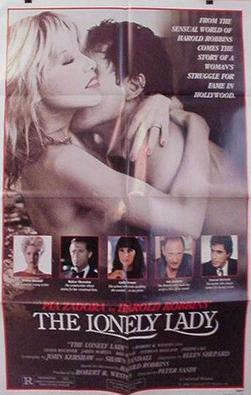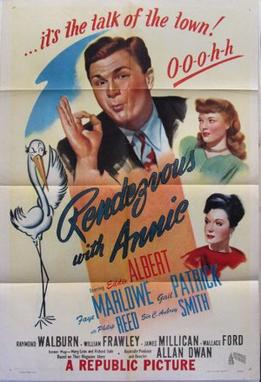Plot
Princeton University mathematics doctoral candidate Catherine Boyd and her hyper-critical English fiancé, experimental psychology professor James Moreland, enter a nearby garage after their car breaks down. Ed Walters, a science-fiction hobbyist mechanic, falls in love with Catherine at first sight and is blatantly enthralled by her, which she pointedly ignores.
Inside the garage, Ed excitedly tells his fellow mechanics that he envisions their future together, their marriage and kids. Catherine comes in, and rattled by Ed's attention, jumbles up her words, but he understands her perfectly.
Finding a watch Catherine accidentally left, Ed goes to her address, coming face to face with Albert Einstein, Catherine's uncle. [2] Albert and his mischievous friends, scientists Nathan Liebknecht, Kurt Gödel, and Boris Podolsky, accept Ed as a friend after he answers a philosophical question on time and retrieves one of their badminton rackets from a tree.
Ed tells them that when he and Catherine met, time slowed down and he had a moment of clarity. The scientists see him as someone better suited for her. Ed takes Einstein to the university on his motorcycle to find Catherine. Although unsuccessful in getting a date with her, he makes her laugh.
At a university dinner, James and Catherine discuss their differing views. He describes an academic, and intellectual experience for their honeymoon. In contrast, she describes a sensual one in Hawaii. James pulls her aside, berating her, so she accuses him of not loving her. Then Catherine gets home and tells Albert about James' plan for them: He'll be a full professor at Stanford, while she is resigned to being a homemaker and full-time mother.
The four scientists get Ed's garage to transform their car into a convertible, brainstorming about how Ed can pique Catherine's interest. Ed, who barely got through high school, jokingly asks to "borrow their brains", inspiring them to give him a makeover and portray him as a hidden genius. They take a paper on cold fusion that Albert wrote in 1925, but never published because he couldn't get the math to work out, and pose it as a concept developed by Ed. Catherine finds Ed apparently discussing his idea of a nuclear fusion space shuttle engine with them. She talks him into presenting its paper at a symposium at Princeton's Institute for Advanced Study.
Ed stumbles through his memorized presentation and they get away with it. At a reception afterwards, the scientists get Catherine and Ed together alone under the stars. When James arrives, Albert feigns a heart attack, asking Catherine and Ed to drive him home for his pills, then he 'finds them' in his pocket. The three stop at a café to get out of the rain. Catherine senses Ed's feelings for her and tries to leave, but Albert distracts her. Playing a waltz on the jukebox, he then has Ed cut in. They dance briefly but suddenly leave when she remembers James is expecting her.
James challenges Ed in front of the press to do a very public set of intelligence tests. After solving the manual puzzles quickly, Ed is subjected to 50 questions on advanced physics. The four scientists in the audience solve the questions easily and prompt him with the answers in a hilarious exchange. As a result, he's rated with an IQ of 186. The remarkable discovery of unknown genius Ed is published in the newspapers and cinema newsreels, pleasing Catherine. However, going over calculations in "Ed's paper" (actually Albert's), she sees something off and approaches her uncle. Albert causes her to doubt her suspicions to protect the ruse. Catherine becomes distraught, but before she leaves, Ed insists that she's more intelligent than she believes.
Uncle Albert arranges a small sailing excursion with James, Catherine, Ed, and himself, but the scientists detain James so he doesn't show up. Albert, steering the boat, sneakily knocks her off balance so she falls into Ed's lap. Catherine, struggling to come to grips with her feelings, finally says she loves him, and they kiss.
Back at the garage, Ed admits to his co-workers he still hasn't told Catherine the truth. At the same time, she realizes it was all a lie. President Eisenhower arrives, pleased with the supposed nuclear fusion engine which will overtake a rumored similar project of the Russians. On his motorcycle, Ed catches up with the presidential motorcade and meets Catherine in a field. She chews him out, but realizes the president and his staff believe he's proposing. Flustered, she tells him to kiss her. He does so and tells her she'd also fallen in love with him at first sight but they had to devise the ruse to convince her. At that, Catherine openly slaps him and returns to the motorcade.
Realizing she's found out, Albert admits to Catherine that she has finally seen through the "intellectual Ed" ruse. He congratulates her on mathematically disproving his theory of 30 years ago, something he couldn't do as he's terrible at math. This further reinforces Catherine's self-confidence.
At the symposium, James blatantly accuses Albert Einstein and Ed Walters of fraud, but Albert turns the tables on him. He says 'Operation Red Cabbage' was their plan to prove the Russians were lying about nuclear fusion advances in space, and Ms. Catherine Boyd and Mr. Ed Walters were key in it.
Albert is rushed to the hospital for a real emergency, and asks Catherine at his bedside to listen to her heart and not let her head keep her from love. Ed arrives, sincerely apologizes to Catherine, and then leaves telling her he hopes one day she'll realize how extraordinary she is.
A comet is due on the night of 1 April. Catherine goes to Stargazers' Field to view it and discovers Ed already there. They view the comet together and Catherine admits she's fallen for Ed.


